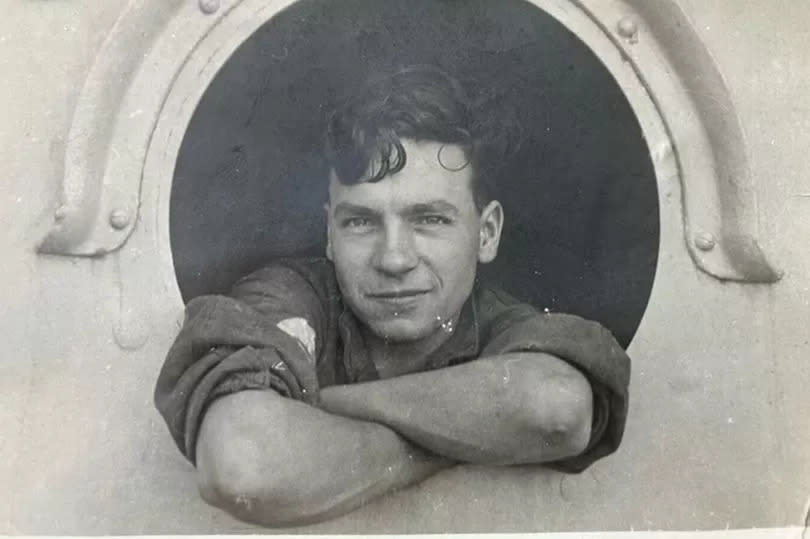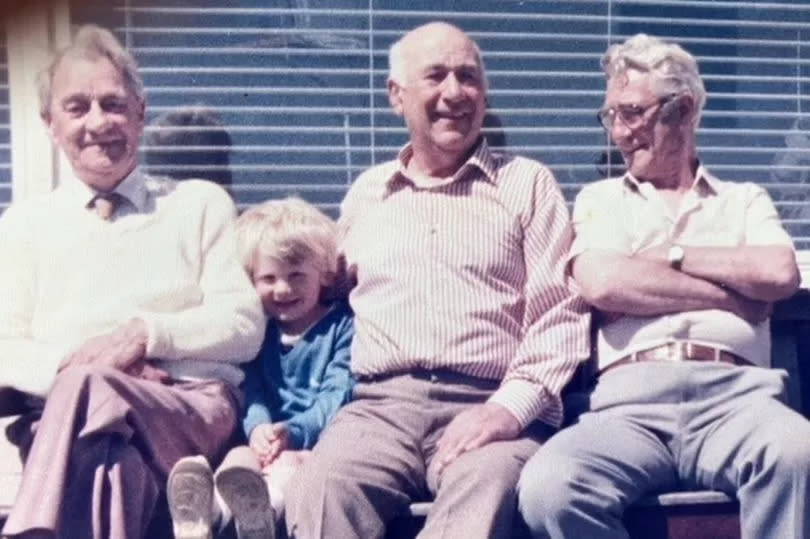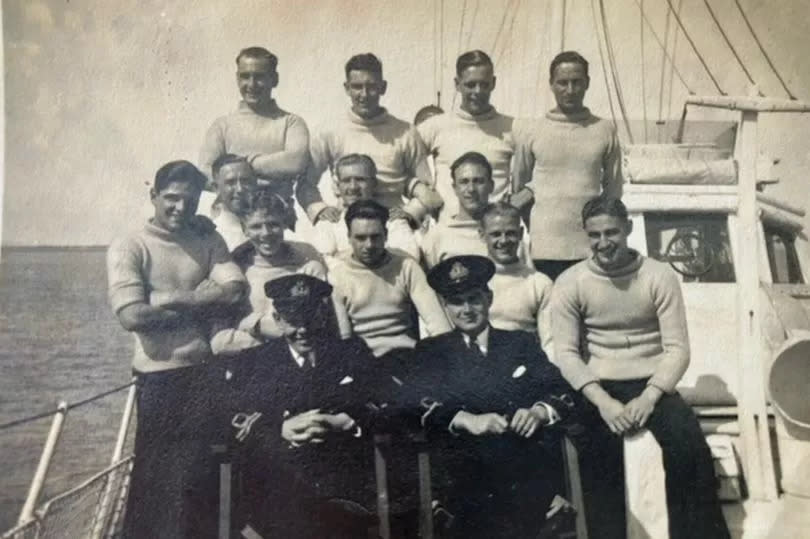D-Day 80: 'The sea was red. It used to haunt him, some of the sights he had seen'

Cyril Horry was a quiet man. Never married, he kept himself to himself.
"He was a grumpy type," says nephew, Ian, now 71. "We used to go fishing with him but you could never get through to him, after what he'd been through. He never, ever told anyone about what he did."
Ian's father, Jack, was Cyril's younger brother. But he passed away years before Cyril did, aged 57.
There were four brothers in total, born in Basford in the 1920s and all were, as with so many other thousands, eager to join the Navy as teens. Each did, and both Cyril and Jack served in the second World War.
But both never spoke much of their exploits. It was only late in Cyril's life, before he died around 2016, that he started to reveal a bit of his past when his nephew posed the question.

He'd joined the Navy in 1940 aged 17, and had been stationed in the Atlantic sea for expeditions. He made a friend there, Tug Wilson, a Brummie.
The pair were dutied to take sledgehammers to break up ice that had frozen over superstructures in the ocean. But not long later, they saw an advert requesting on-board volunteers for unspecified special operations.
It paid a shilling more per week. The two were sold.
It turned out that they were to be part of the Coast Forces division of the Royal Navy, which operated motor launches and plywood torpedo boats in the English Channel and North Sea. The pair were involved in numerous exploits, including the rescuing of concentration camp agents, sent by Resistance forces to Scandinavia to be collected and brought to England.
There, they would tell the British about the Holocaust. The horror was scarcely believable.
Cyril and Tug were also part of the infamous St Nazaire Raid in 1942, when a British destroyer boat disguised as a German warship rammed into the Normandie dock and exploded, destroying it.
The raid is known as the greatest of all time in British naval circles. But the scale of human loss associated with the attack is lesser discussed.
Out of the 612 men who went on the operation, 169 were killed. A further 215 were taken prisoner. Only 228 returned.
Out of the 16 or so motor launchers that accompanied the destroyers, all but one were decimated in the return attack. Uncle Cyril's was only boat that returned.
His friend died in his arms on the way home.
Two years later, on June 4, 1944, Cyril and Tug were sent across to the coast of Normandy, two days before the D-Day landings. They had no idea why - the scale and wider purpose of Operation Neptune had been kept strictly secret, even to the men who were to be involved in it.
Their job was to combat the threat of the fast German "E" attack boats to allied ships. At night, the torpedos would dock in river estuaries and camouflage themselves.

The next night, on June 5, the crew received orders to rendezvous with a submarine and send signals out to sea. These were, unbeknownst to the friends, to guide the allied ships towards Sword Beach, one of the five main landing areas of the invasion.
So when one arrived over the horizon, breaking through the mist, at just past 4am on June 6, Tug, assuming it was German, thought his time had come.
"We're for it now, mate," he told Cyril.
But the Basford boy knew that the figure appearing from the darkness was actually HMS Warspite. As the clock struck five, it fired the very first shots at the German forts from 26,000 yards off shore.
After the operation, the torpedos were sent over to Omaha beach, where the Americans had launched their operation - but word about its success was not clear. When they got there, it became evident.
"He told me you have never seen such a sight in all your life," Ian recalls of his conversation with Uncle Cyril.
"He said they were hard pressed to go through the water. There was bodies floating everywhere. The sea was actually red."
Ian continues. "It was something you could never forget. It used to haunt him, some of the sights he had seen."
After the war, the troops who did survive, like Cyril, went back to normal lives, as if none of it had ever happened. He worked as a plasterer and distanced himself from the events of the early 1940s.
Many of his generation were the same. In any case, the details of the Coastal Forces' involvement in World War II - including the casualties they'd suffered - was kept top secret for decades in highly classified documents.
It was only when his nephew asked that Cyril's tale - never told publicly before - came to light. "He would tell me these things and had no idea of the significance of them," says Ian.
"There were films made about these operations and he never knew they existed."
As the D-Day generation, the youngest of whom is now touching 100, continues to diminish in size, anniversary events to remember their sacrifices - that words simply do not do justice to - continue to be crucial in making people aware of the extraordinary feats that these heroes achieved. As a descendant, it's something that makes Ian extremely proud - and he wanted to tell Cyril's story for the first time.
The ones who made those sacrifices were young, carefree boys, excited at the prospect of going to battle and with little idea of what they were getting themselves into. At the end of it all, the impact it had on them was, literally in many cases, unspeakable.
"He said when he was going into action, it was the biggest thrill of his life," says Ian of uncle Cyril, who was in his early nineties when he died.
"But when it was over, he couldn't stop shaking. He couldn't get it out of his mind."

 Yahoo News
Yahoo News 
